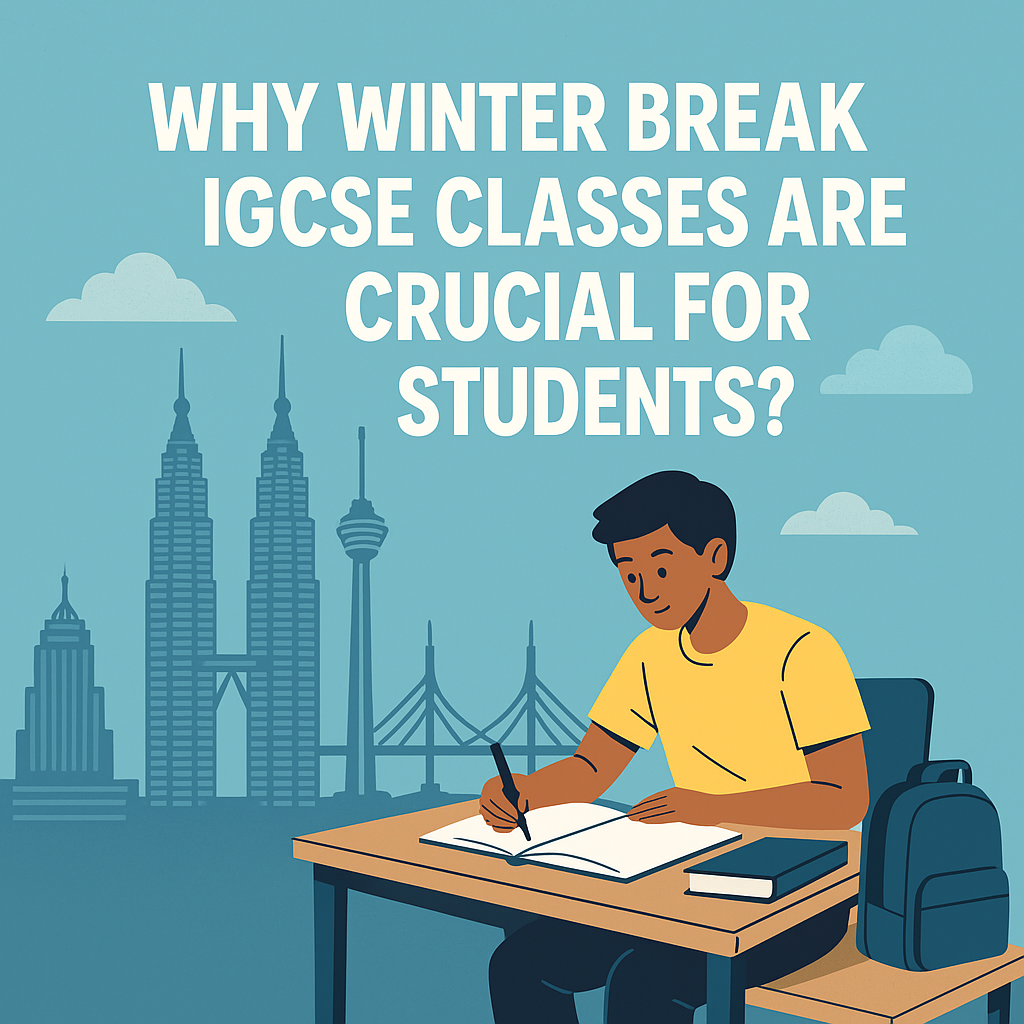The winter break is a time to rest and recharge — but for IGCSE students, it’s also one of the most valuable periods to review, reflect, and prepare.
Between December and February, many students across Malaysia and abroad use this time to reinforce subjects before the May/June IGCSE exam session.
For others, it’s the ideal period to bridge topics before moving into a new academic level.
At My Protutor Educentre, we encourage students to make the most of the holidays — balancing rest with light, consistent learning that builds understanding and confidence for the months ahead.
Why Winter Holidays Are Ideal for Exam Preparation
1️⃣ More Flexible Learning Hours
With school out, students can plan study sessions at their own pace. Even 2–3 focused hours daily can make a big difference in retention and understanding.
2️⃣ Time for Conceptual Revision
Instead of rushing through topics during the school term, the holidays allow students to revisit and master areas they found challenging.
3️⃣ Opportunity to Practice Past Papers
Working on real exam papers under timed conditions strengthens exam technique and improves accuracy.
4️⃣ Smooth Transition Between Levels
For younger students completing Lower Secondary, the holidays are perfect for bridging into IGCSE subjects such as Physics, Add Maths, and English as a Second Language.
Understanding the IGCSE May/June Session
In Malaysia, most students sit for their IGCSE exams in the May/June or October/November sessions under the Cambridge (CAIE) or Pearson Edexcel boards.
The May/June session typically begins in late April and runs through mid-June.
That means students returning to school in January have less than four months to revise before exams begin.
This makes the December–February window a strategic time for early preparation, helping students reduce stress and build exam momentum.
Example timeline for May/June 2026 candidates:
- December–January: Intensive subject revision and past-paper practice
- February–March: Consolidation of key topics and mock tests
- April–June: Final exam preparation and performance boost
Using the winter break wisely helps students start the new term focused, organised, and confident.
Preparing for Year-End Exams (Lower & Upper Secondary Students)
For many Lower and Upper Secondary students, the year-end exam is a crucial checkpoint before advancing to the next level. The topics tested often determine how well students grasp the fundamentals needed for future subjects — especially before entering IGCSE or SPM-equivalent courses.
Taking time during the October–December revision period to review chapters, practise structured questions, and address weak areas can significantly improve performance.
If your child is completing Lower Secondary this year, it’s an excellent opportunity to begin light IGCSE bridging — particularly in Mathematics, Combined Science, and English.
🔗 Read next: How to Use the Year-End Holidays to Strengthen Core Subjects (Lower & Upper Secondary)
What to Focus On During the Winter Break
Here are a few practical ways to make study sessions more effective during the holidays:
Study Goal | Example Activities |
Reinforce Weak Subjects | Review notes, watch educational videos, or join short revision classes |
Practise Exam Papers | Attempt 1–2 past papers weekly under timed conditions |
Build Exam Skills | Focus on time management and understanding command words |
Organise Study Materials | Summarise key formulas, definitions, and essay outlines |
Plan Ahead | Create a realistic weekly revision schedule and stick to it |
A balanced approach keeps the mind active while leaving plenty of time to relax and recharge.
Recommended Subjects to Prioritise
For students preparing for the May/June IGCSE exams, it’s wise to focus early on core and high-weightage subjects:
- Mathematics (Core / Extended)
- Bahasa Malaysia and English
- Physics, Chemistry, and Biology
- Additional Mathematics
- Business Studies, Economics or Accounting
This is also a great time to review coursework, improve essay writing, or catch up on incomplete lab work and practical topics.
Balancing Rest and Study
Rest is equally important. A good approach is to keep mornings or early afternoons for study and use evenings for relaxation or family time.
Consistency — even in short sessions — builds lasting habits that support long-term success.
If you’re unsure where to start, My Protutor Educentre offers Winter Break IGCSE Classes, designed to complement your own study plan — not replace it. Our tutors focus on subject mastery, past-paper techniques, and confidence-building strategies to help students succeed.
For Expat Students in Malaysia
Expat families who have recently relocated to Malaysia often notice small differences between their previous school syllabus and the local IGCSE curriculum.
Joining winter break review classes or guided study sessions can help students adjust to Malaysia’s academic style, exam formats, and question phrasing before the term resumes.
🔗 Read next: Why Expat Students in Malaysia Should Start IGCSE Prep Early During the Winter Break

